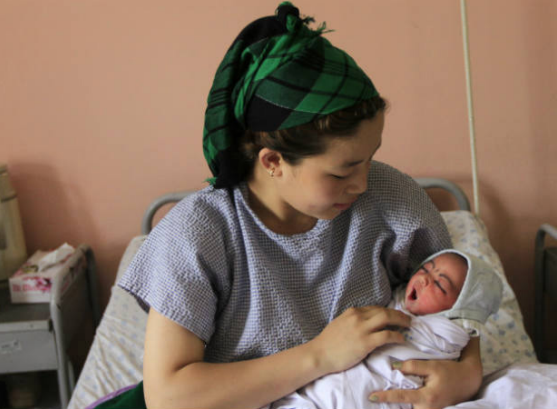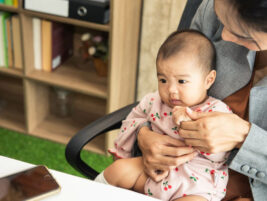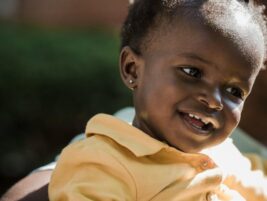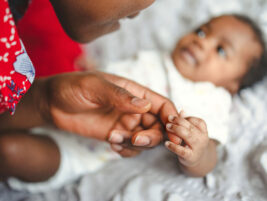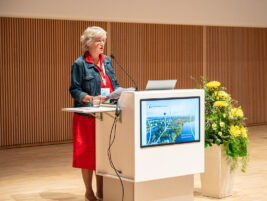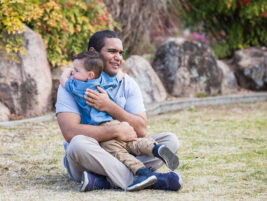In a small rural community close to my university, a refugee family from Afghanistan came under attack after their state benefit was made public illegally on the internet. The family (with 5 children all aged under12 years, including a 6-month-old baby) was threatened with violence from local inhabitants who were enraged by the amount of money that the refugee family received from the government. The local people themselves are usually not very well-off, but the unemployment rate of the community is currently the lowest it has been since 1990. Moreover, the proportion of migrant population is less than 5%. Nevertheless, the local people were full of resentment and envy. In the end the family had to move to another city to escape the threat of violence.
Right-wing populist parties and movements (Betz & Immerfall, 1998) build their growing success in established democracies on reflecting this kind of negative feeling in parts of the population. Appealing to public anxieties in the wake of rapid economic change, these movements successfully mobilize and exploit popular resentments against immigrants, minorities, and the political establishment. As a result, the radical populist right has become a severe and potentially destabilizing threat to the democratic systems in many countries.
Developmental science can contribute to an understanding of such destructive social processes. Research has shown that humans, like their nearest animal relatives, tend to build their growing capacity to cooperate with others on their sense of a belonging to an in-group, in contrast to out-groups whose members are perceived as rivals or even enemies. Oostenbroek & Over (2015) have demonstrated that even young children prefer members of their own group to members of out-groups. Five-year-old children (and to a lesser extent four-year-olds too) treat out-group members differently from neutral individuals within a social learning context. Children of this age do not simply ignore the out-group but actually compare and contrast their behaviour to that of the out-group members. From around 5 or 6 years of age, children start to treat out-group members more negatively than neutral individuals (Buttelmann & Böhm, 2014). Children of this age tend to distance themselves behaviourally from out-group members. It seems that they do not merely show in-group preferences but react directly to the behaviour of the out-group (Misch, Over, & Carpenter, 2016; Plotner, Over, Carpenter, & Tomasello, 2015).
Young children are aware of being members of specific social groups or categories. Children acquire a basic knowledge about the structure of their social environment at a very early age; they learn which groups exist, how they are labelled, and which evaluations are associated with them (Degner & Wentura, 2010). If preschool and early school children are asked to categorize pictures of persons of their own ethnicity vs. those of a different ethnicity, they act faster and more accurately to the same valence, and slower and less accurately to targets of a different valence. Social psychology concludes from this priming effect that an automatic prejudice process is already at work at this early age. Depending on the task, the priming procedure yielded differences in children’s automatic responses from the age of 6 upwards (Baron & Banaji, 2006).
Political campaigns that build on the slogan “my group/ my country comes first” succeed because of the deep human need for belonging to an in-group, which is seen as superior to an out-group. An in-group identity might take over the function of providing safety to the individual from earlier dyadic (attachment) and triadic relationships during infancy. The wish to belong to a group might have an evolutionary function – from times in which survival was guaranteed by belonging to the stronger group at the expense of the inferior or defeated group. Feelings of aggression, envy and resentment towards members of the out-group – like the response of the above-mentioned community towards refugees – might indeed have had survival value. In psychoanalysis we have several theories about how such negative feelings towards human objects and object representations develop from relational constellations in early childhood. S. Freud (1921) associated mass phenomena in large in-group settings with the development of narcissism. The narcissistically vulnerable individual identifies with all the other members of the group who feel attracted to an idealized leader. Klein (1946) has drawn our attention to “primitive” early defence mechanisms in which our own negative feelings (such as hate, greed etc.) are projected into the person opposite, who then must be fought. Idealization of the identity of one’s own group, adherence to a strong leader, and aggression towards external enemies are important psychological backgrounds to the growing populistic movements all over the world.
But the world is no longer a place in which fighting and defeating one’s enemies guarantees survival of one’s own group. The survival of the human species has long been a global task. One example of the struggle for global survival has been the topic of the 2016 General Discussion day of the Committee on the Rights of the Child on “children’s rights and the environment”: the excessive use of energy for the economic wellbeing of few rich countries leads to tremendous climate problems in other parts of the world (global warming, expansion of desert zones in Africa, rise of sea levels, etc.). This can cause such dramatic decline in resources for living (water, fertile land etc.) that it leads to military distribution battles and new movements of mass migrations, which in the end can destabilize the countries of the northern hemisphere as well.
Therefore there is a need for other human qualities, in order to ensure global survival and wellbeing. We have to extend our disposition of cooperation over and above our own immediate in-group to the global world community. We have to overcome our automatic prejudice against those fellow human beings who look different and come from other cultural backgrounds than we do. Rich countries have to limit their craving to become even richer at the expense of poor countries. The community of industrialized nations has to find a fair way to distribute and integrate the millions of refugees who flee from war and poverty. Individual capacities of empathy, moral commitment, and reflective functioning can be the basis for such urgently needed global solidarity within and between our societies.
And guess what is the ontogenetic root of such prosocial capacities? When and how do human individuals lay the foundations for empathy, moral principles, and reflective functioning? These qualities are rooted in infancy, and early relational experiences are the most important catalysts. Scientific findings suggest that as early as the second year of life, prosocial behaviour of infants develops from a reliance on action understanding and explicit communications to understanding others’ emotion (Svetlova, Nichols, & Brownell, 2010). Complex altruistic motivation appears to be a later phenomenon, which builds upon the more basic prosocial motivation emerging and developing in toddlerhood. Warneken & Tomasello (2009) suggest that human infants are naturally altruistic, and as ontogeny proceeds and they must deal more independently with a wider range of social contexts, socialization and feedback from social interactions with others become important mediators of these initial altruistic tendencies. Emde (1991) emphasized that infants internalize knowledge schemes for action that are both evaluative and strategically directive during their early interactions. Most emotionally engaging experiences of infancy are stored as procedural knowledge and are made use of in ways that are not accessible to consciousness; such experiences nonetheless contribute to the development of the affective core of an early moral self. Significant advances in moral development take place in later childhood or even adulthood, but these achievements have deep, constructive roots in the experiences of early childhood (Thompson, 2012). Fonagy, Steele, Steele, Moran, & Higitt (1991) have shown that the young child develops a coherent sense of self and identity through interactions with empathic and reflective caregivers and that this is the basis for capacity to imagine the minds of others and to mentalize in relation to others.
All these qualities and capacities continue to develop throughout life, but they are rooted in healthy experiences in dyadic, triadic, and polyadic relationships with caring adults during early childhood. Without the positive experience of adequate interactions with loving others during infancy we bear a lifelong risk of being overwhelmed by destructive impulses towards the self and others. Early emotional neglect can make us narcissistically so vulnerable that we are at significant risk of identifying with destructive groups and their idealized leaders and of directing our hate and envy towards members of out-groups, such as refugees, other religions, other cultures, and political opponents. In the long run, if we want to protect our social environments from destabilization and from populist ideas taking over our hearts and those of our fellow citizens, we must advocate for an improvement in the living conditions and relational experiences that the societies of the world offer to their youngest members.
References
Baron, A. S., & Banaji, M. R. (2006). The development of implicit attitudes. Evidence of race evaluations from ages 6 and 10 and adulthood. Psychological science, 17(1), 53–58.
Betz, H.-G., & Immerfall, S. (1998). The new politics of the Right: Neo-Populist parties and movements in established democracies (1st ed.). New York: St. Martinʼs Press.
Buttelmann, D., & Böhm, R. (2014). The ontogeny of the motivation that underlies in-group bias. Psychological science, 25(4), 921–927.
Degner, J., & Wentura, D. (2010). Automatic prejudice in childhood and early adolescence. Journal of personality and social psychology, 98(3), 356–374.
Emde, R. (1991). The moral self of infancy: Affective core and procedural knowledge. Developmental Review, 11(3), 251–270.
Fonagy, P., Steele, M., Steele, H., Moran, G., & Higitt, A. (1991). The capacity for understanding mental states: The reflective self in parent and child and its significance for security of attachment. Infant Mental Health Journal, 12, 201–217.
Freud, S. (1982). Massenpsychologie und Ich-Analyse (1921). In Studienausgabe, Gesammelte Werke, 13, 71-161 (pp. 61–134). Frankfurt a.M.: Fischer.
Klein, M. (1946). Notes on some schizoid mechanisms. International Journal of Psycho-Analysis, 27, 99–110.
Misch, A., Over, H., & Carpenter, M. (2016). I won’t tell: Young children show loyalty to their group by keeping group secrets. Journal of experimental child psychology, 142, 96–106.
Oostenbroek, J., & Over, H. (2015). Young children contrast their behavior to that of out-group members. Journal of experimental child psychology, 139, 234–241.
Plotner, M., Over, H., Carpenter, M., & Tomasello, M. (2015). The effects of collaboration and minimal-group membership on children’s prosocial behavior, liking, affiliation, and trust. Journal of experimental child psychology, 139, 161–173.
Svetlova, M., Nichols, S. R., & Brownell, C. A. (2010). Toddlers’ prosocial behavior: From instrumental to empathic to altruistic helping. Child Development, 81(6), 1814–1827.
Thompson, R. A. (2012). Whither the Preconventional Child? Toward a life-span moral development theory. Child Development Perspectives, 6(4), 423–429.
Warneken, F., & Tomasello, M. (2009). The roots of human altruism. British Journal of Psychology, 100(3), 455–471.
Authors
von Klitzing, Kai,
MD, WAIMH President,
Germany
Kai.Klitzing@medizin.uni-leipzig.de


